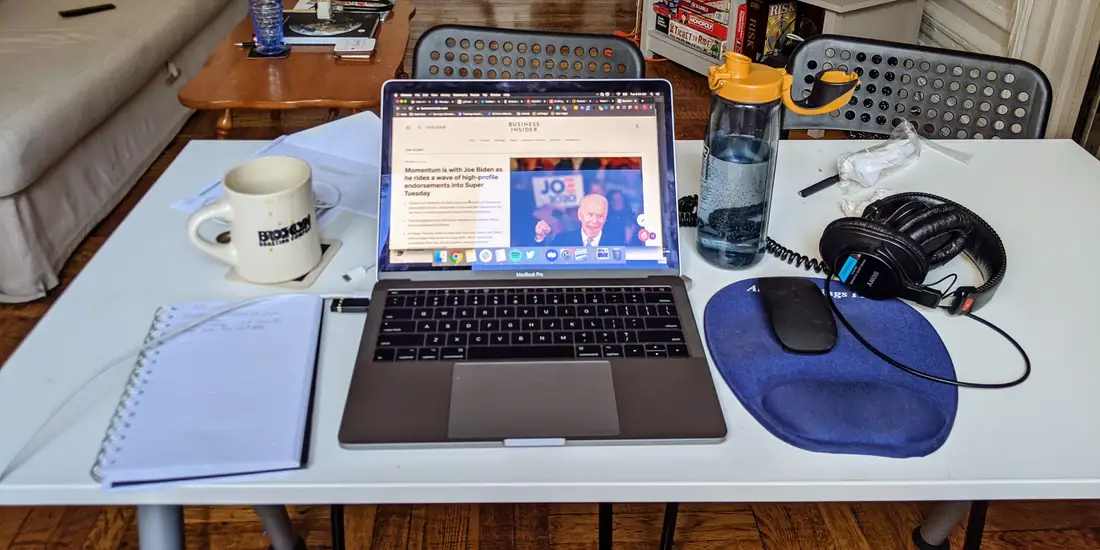The tech industry is trying a new approach to prevent the spread of coronavirus in the work space – work from home. Twitter, LinkedIn and Microsoft have asked their employees to work from home if possible. Google has asked its employees in Dublin to work from home after a report of an employee who had contact with coronavirus.
In China, Facebook has asked its workers to work from home while the social media seek ways to help experts in the fight to contain the outbreak.
In the wake of the ‘work from home’ directive by many companies, businesses offering online meetings like Zoom and BlueJeans witnessed boom due to massive increase in the use of their services.
Google said it is giving G-Suite customers free access to the suite’s advanced features. The advanced feature has the ability to hold virtual meetings with hundreds of participants and stream live events to tens of thousands of people.
Microsoft also announced a plan to offer six-month free trials of Teams, a video chat product that will enable employees to hold discussions among themselves.
Tech companies are seeking ways to protect their employees and people in general. Twitter said in a blog post on Thursday that it is working to ensure that misinformation about the virus is curtailed. The statement also said that part of the efforts is to prevent dehumanization of people who have been infected. The social media platform is making some changes in its policies to accommodate the new rules which include protecting people from dehumanization for their faith.
Jerrel Peterson lead of Twitter’s global safety team said: ‘It just happens to be that we’re having this issue right now with coronavirus. Whenever something happens in the world, people come to Twitter to talk about it. We are seeing lots of conversations about it,” he said.
The blog post said protecting the conversation is a way Twitter is working to ensure that people are rightly informed.
“The power of a uniquely open service during a public health emergency is clear. The speed and borderless nature of Twitter presents an extraordinary opportunity to get the word out and ensure people have access to the latest information from expert sources around the world.
“To support that mission, our global Trust & Safety team is continuing its zero-tolerance approach to platform manipulation and any other attempts to abuse our service at this critical juncture.
“At present, we’re not seeing significant coordinated platform manipulation efforts around these issues. However, we will remain vigilant and have invested substantially in our proactive abilities to ensure trends, search, and other common areas of the service are protected from malicious behaviors,” the post said.
Facebook also announced similar and other measures it is taking to help in the fight against COVID-19. In a post issued by CEO Mark Zuckerberg, the company outlined many steps, including removing misinformation about coronavirus and directing searches about the disease to the World Health Organization (WHO) or local healthcare authorities.
“We’re focused on making sure everyone can access credible and accurate information. This is critical in any emergency, but it’s especially important when there are precautions you can take to reduce the risk of infections.
“If you search for coronavirus on Facebook, you’ll see a pop-up that directs you to the World Health Organization or your local health authority for the latest information.
“We’re also focused on stopping hoaxes and harmful misinformation. It’s important that everyone has a place to share their experiences and talk about the outbreak, but as our community standards make clear, it’s not okay to share something that puts people in danger. So we’re removing false claims and conspiracy theories that have been flagged by leading global health organizations,” Zuckerberg said.
YouTube is following the steps by directing coronavirus searches to World Health Organization or local health bodies.
Other companies like Amazon and Apple have asked their workers to limit their travel plans to essentials only, especially when the destination is China. Visitors have also been restricted from offices while employees who show symptoms of illness are asked to stay at home until they’re cleared by medical professionals.
While the efforts of the tech companies have been commended, the concern is whether the measures will actually help to stop the spread of scourge, especially the ‘work from home.’ Employees will always go to public places where they will meet people. So the long run may require another approach, though it is not clear what dimension it will take.






